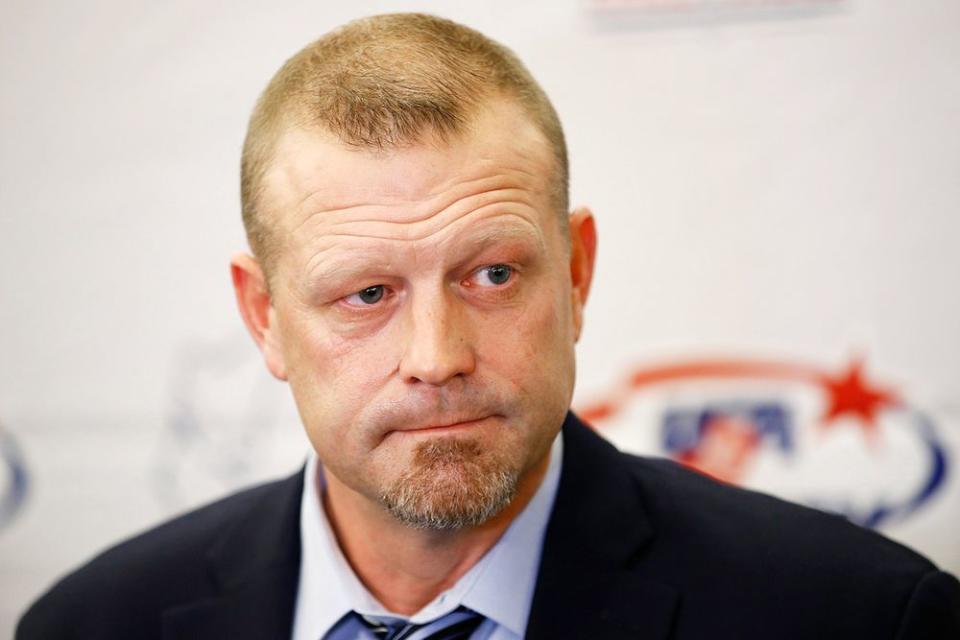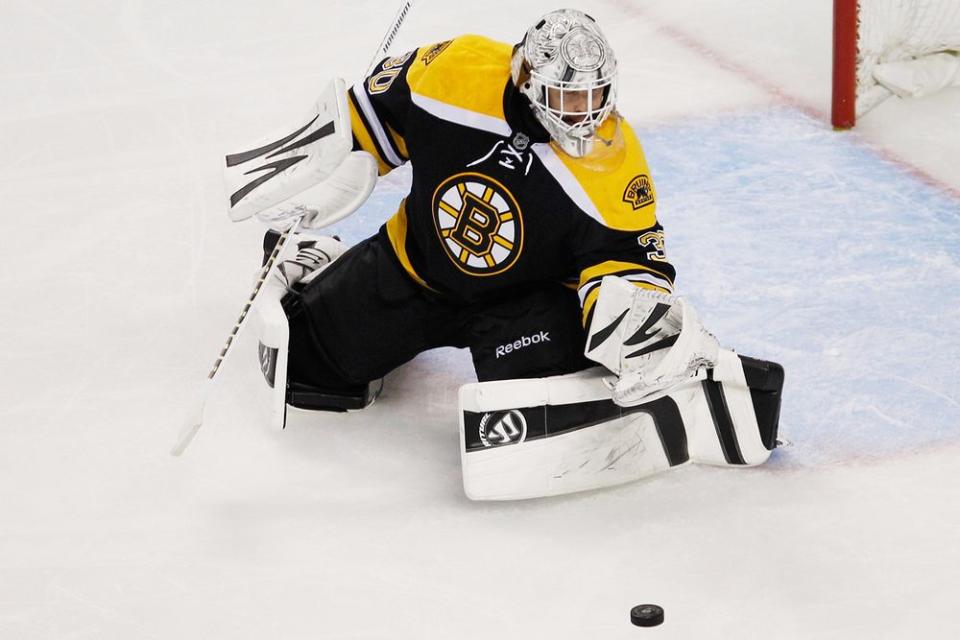Former Bruins Goalie Tim Thomas Reveals He Suddenly Retired from Hockey Because of Brain Damage

A former NHL star is opening up about his emotional decision to hang up his skates after suffering a brain injury.
Following his retirement from the sport in 2014, Tim Thomas, 45, returned to the ice for the first time Thursday to be inducted into the U.S. Hockey Hall of Fame. During the ceremonial event, Thomas detailed his struggle with the brain damage he received while playing hockey.
The ex-Bruins goalie explained that during a December 2013 game while he was playing for the Florida Panthers he suffered a concussion “that changed [his] life,” ESPN reported.
“I woke up the next morning after it and I couldn’t decide what I wanted to eat, where I wanted to go,” Thomas told reporters during the ceremony. “I couldn’t plan a schedule. I survived following the team schedule the rest of the year and just made it through that season.”

While the former athlete played out the remainder of the season, including the World Championship, he revealed that he was only able “to be like 97 percent maybe, 95 percent of what [he] was before.”
RELATED: Rob Gronkowski Says He’s Had ‘Probably 20 Concussions’ in His Career — with ‘Five Blackout Ones’
After leaving the NHL, Thomas said it was difficult to talk about his situation, adding that he “couldn’t follow the game anymore” and “didn’t watch much hockey.”
“I couldn’t communicate with anybody for a few years,” he continued. “I didn’t call my dad. I didn’t talk to anybody. There was a time period, yeah, where I hated the game, so to speak. I didn’t sit there and [say] ‘I hate it.’ My rebound effect was like, this wasn’t worth it.”

Thomas explained that a year into his retirement, he went to get a CereScan, which measures the blood flow to the brain, according to The Washington Post. The results showed that two-thirds of Thomas’ brain was getting less than five percent of blood flow while the other third was receiving an average of 50 percent.
RELATED: Robin Lehner Receives NHL Award, Says ‘I’m Mentally Ill, but That Doesn’t Mean I’m Mentally Weak’
Though speaking out about his injuries was difficult, according to ESPN, Thomas said he has been leaning on his wife, kids and brother for support.
“I didn’t want to talk about this,” he added. “I didn’t want to talk. I didn’t want to tell the world this stuff. Not till I felt ready, and I didn’t feel ready yet. But here I am.”
Now, living in Idaho with his family, he shared he feels “so much better” despite having to “reorder everything in my mind for the first couple hours of the day and then make a list and try to make some choices to get some stuff done.”
He added that while he was nervous to return to the rink on Thursday, it was “surprisingly comfortable.”
“Being out on the ice even [for the puck drop] that is an atmosphere that I had done quite a bit over my lifetime, but it had been a long time and I didn’t know what it was going to be like. It actually felt pretty comfortable and it was great,” he said.

